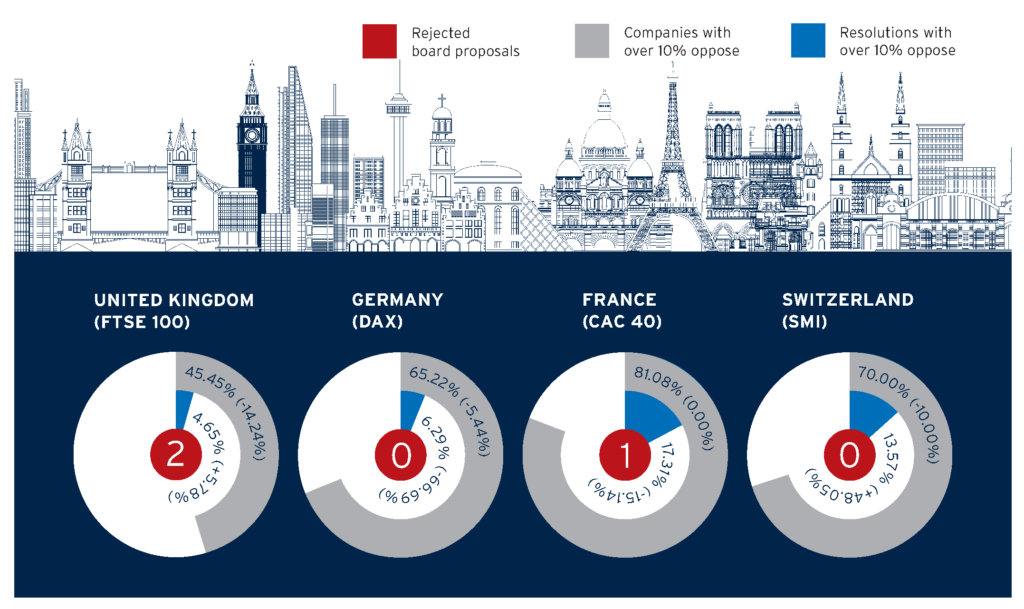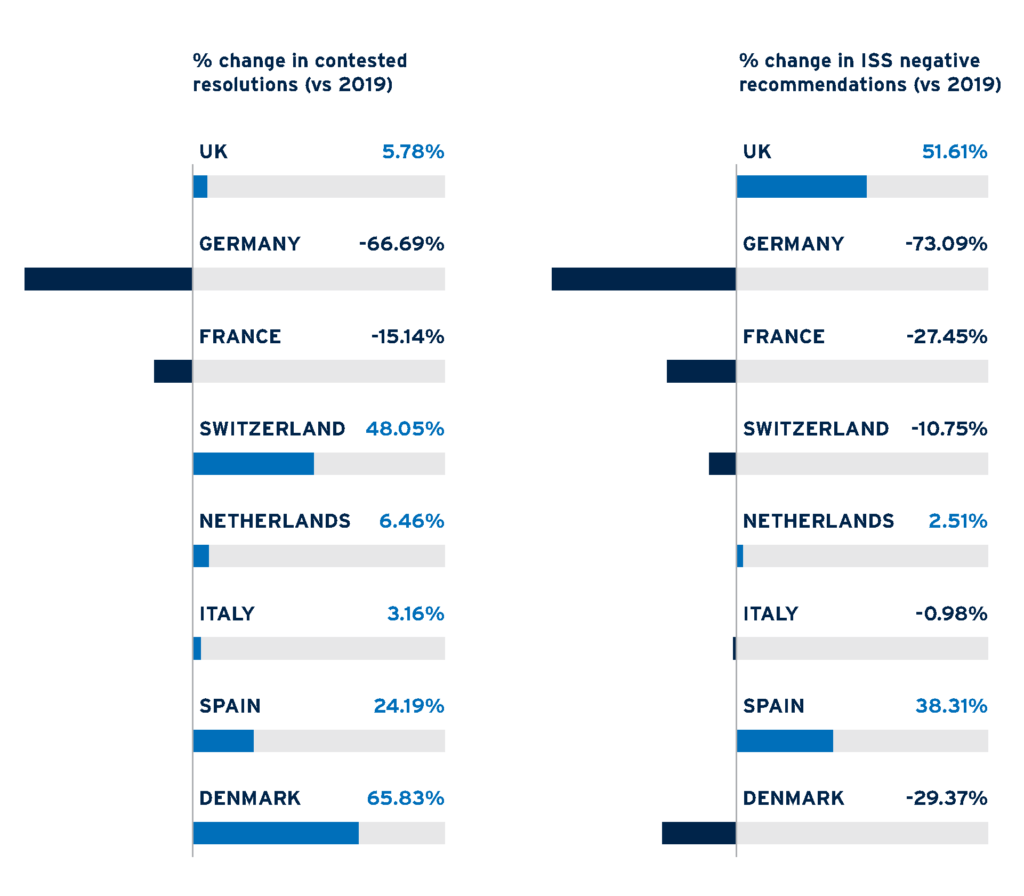Michelle Edkins is Managing Director, Hilary Novik-Sandberg is an Associate and Victoria Gaytan is a Vice President at BlackRock Investment Stewardship. This post is based on a BlackRock memorandum by Ms. Edkins, Ms. Novik-Sandberg, Ms. Gaytan, and Sandra Boss.
Our fiduciary responsibility
BlackRock Investment Stewardship’s (BIS) activities are a crucial component of our fiduciary duty to our clients. Investment stewardship is how we use our voice as an investor to promote sound corporate governance and business practices to help maximize long-term shareholder value for our clients, the vast majority of whom are investing for long-term goals such as retirement. In addition to direct dialogue with the companies in which our clients invest, we help shape norms in corporate governance, sustainability, and stewardship through active participation in private sector initiatives and the public policy debate. In the reporting year from July 1, 2019 to July 30, 2020, we responded formally to seven policy consultations and spoke at more than 180 events to advance sound governance and sustainable business practices.
Promoting sound corporate governance is at the heart of our stewardship program. We believe that high-quality leadership and business management is essential to delivering sustainable financial performance. That is why we focus on board quality, effectiveness, and accountability across the broad universe of companies globally that our clients are invested in. Engagement and voting are the two most frequently used instruments in BIS’ stewardship toolkit.


SEC’s Proposed Reporting Threshold for Institutional Investment Managers
More from: Daniel Taylor, Mary Barth, Travis Dyer, Wayne Landsman
Daniel Taylor is associate professor of accounting at the Wharton School of the University of Pennsylvania. This post is based on a comment letter to the U.S. Securities and Exchange Commission by Mr. Taylor; Mary Barth, the Joan E. Horngren Professor of Accounting, Emerita, at Stanford Graduate School of Business; Travis Dyer, assistant professor of accounting at Cornell University SC Johnson College of Business; and Wayne Landsman, KPMG Distinguished Professor of Accounting at the University of North Carolina Kenan-Flagler Business School. Related research from the Program on Corporate Governance includes The Law and Economics of Blockholder Disclosure by Lucian Bebchuk and Robert J. Jackson Jr. (discussed on the Forum here).
We appreciate the opportunity to comment on the Securities and Exchange Commission’s (the “Commission”) proposed Reporting Threshold for Institutional Investment Managers. Herein we provide comments and analysis relating primarily to the Request for Comments in Sections II.D III.B of the proposed rule (“Proposal”).
Part I of this letter provides comment on the central premise of the Proposal. The Commission estimates that the Proposal would exempt 89% of institutional investors from filing Form 13F (“affected filers”) and provide an average annual cost savings of approximately $21,000 per affected filer. These cost savings are economically small in that they amount to 0.004% (0.008%) of assets under management for the average (median) affected filer, and 0.02% of assets for the smallest filer. This small cost savings needs to be weighed against the potentially large costs to investors and others created by eliminating a public disclosure that they heavily use.
Part II of this letter comments on various aspects of Section II of the Proposal, “Discussion and Economic Analysis.” We believe the analysis in Section II is incomplete for two reasons. First, the Proposal does not contain any formal economic analysis, and does not attempt to quantify either the extent of use of Form 13F or the benefits that it provides to investors and other stakeholders. To help fill this void, we analyze the usage patterns of the EDGAR system, and specifically the frequency of Form 13F downloads from EDGAR.
READ MORE »